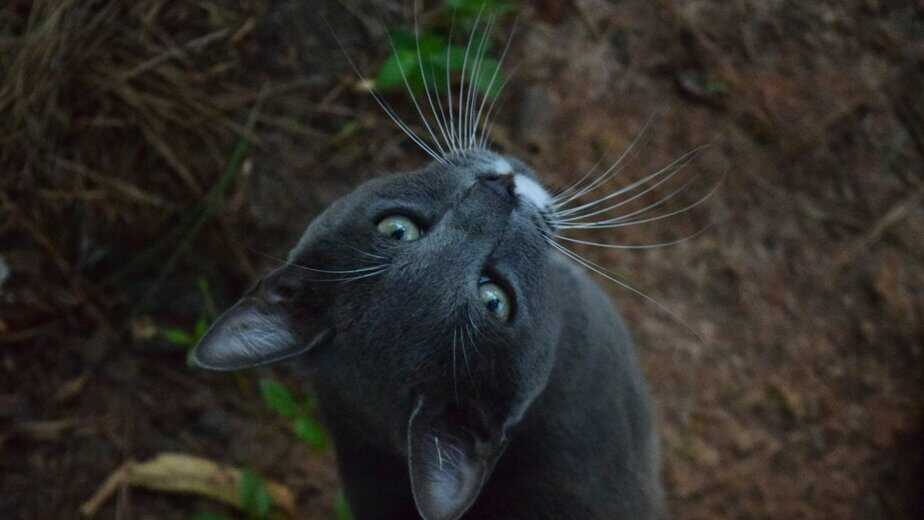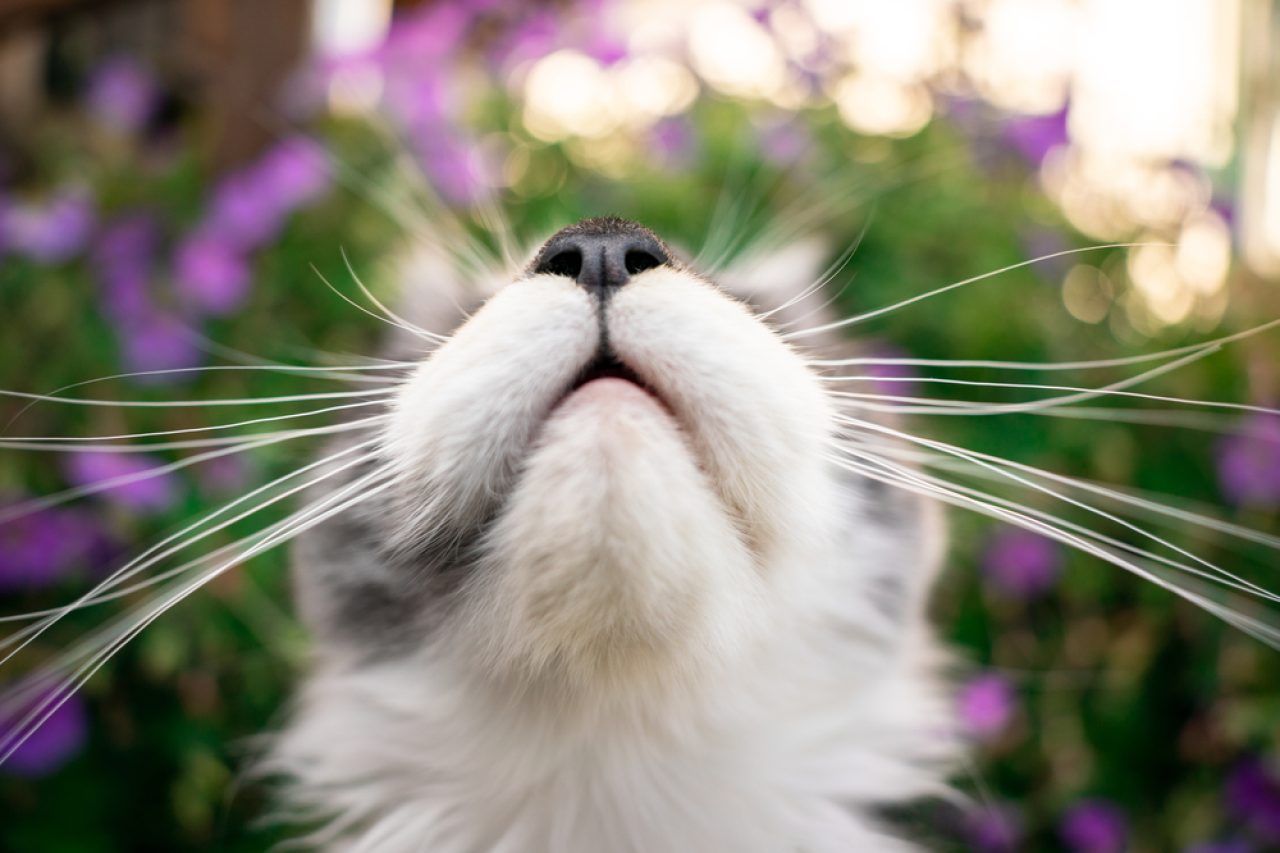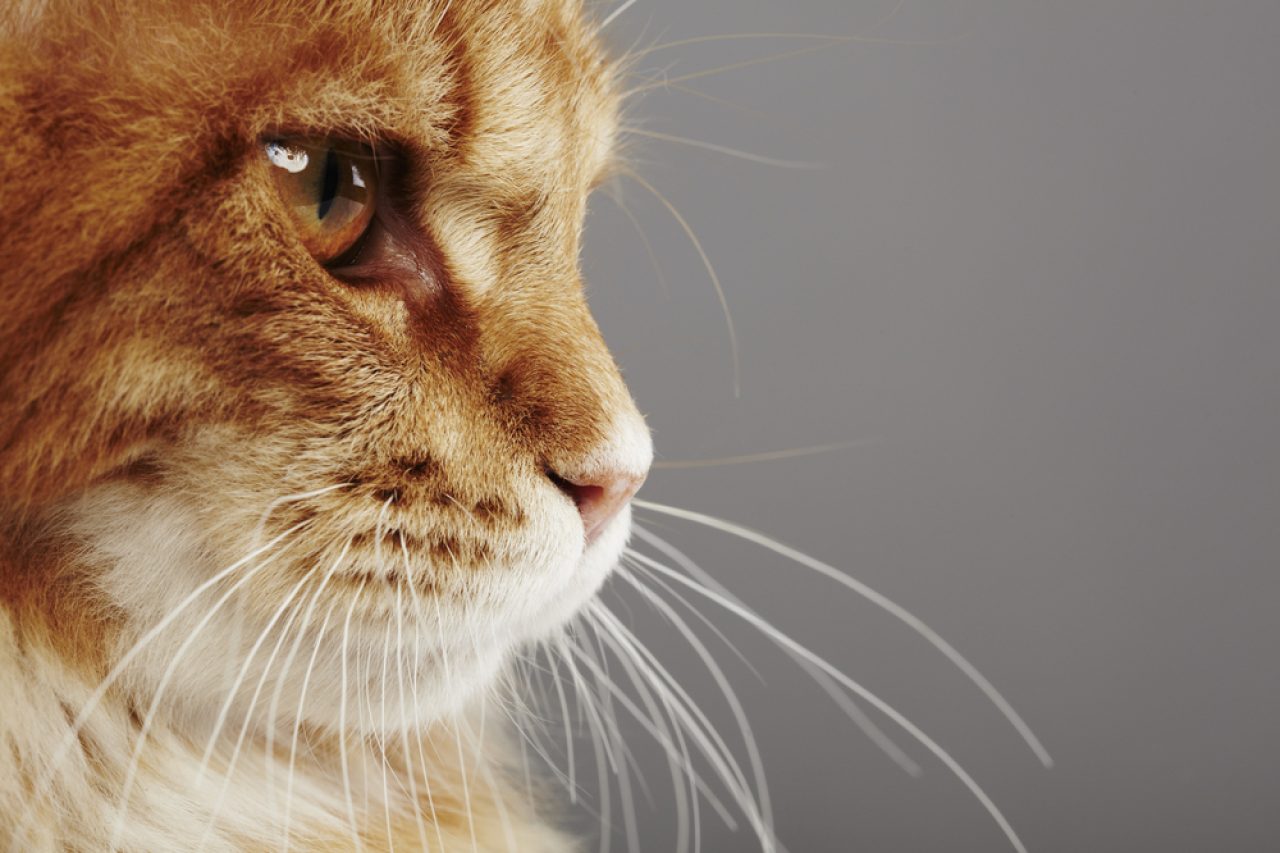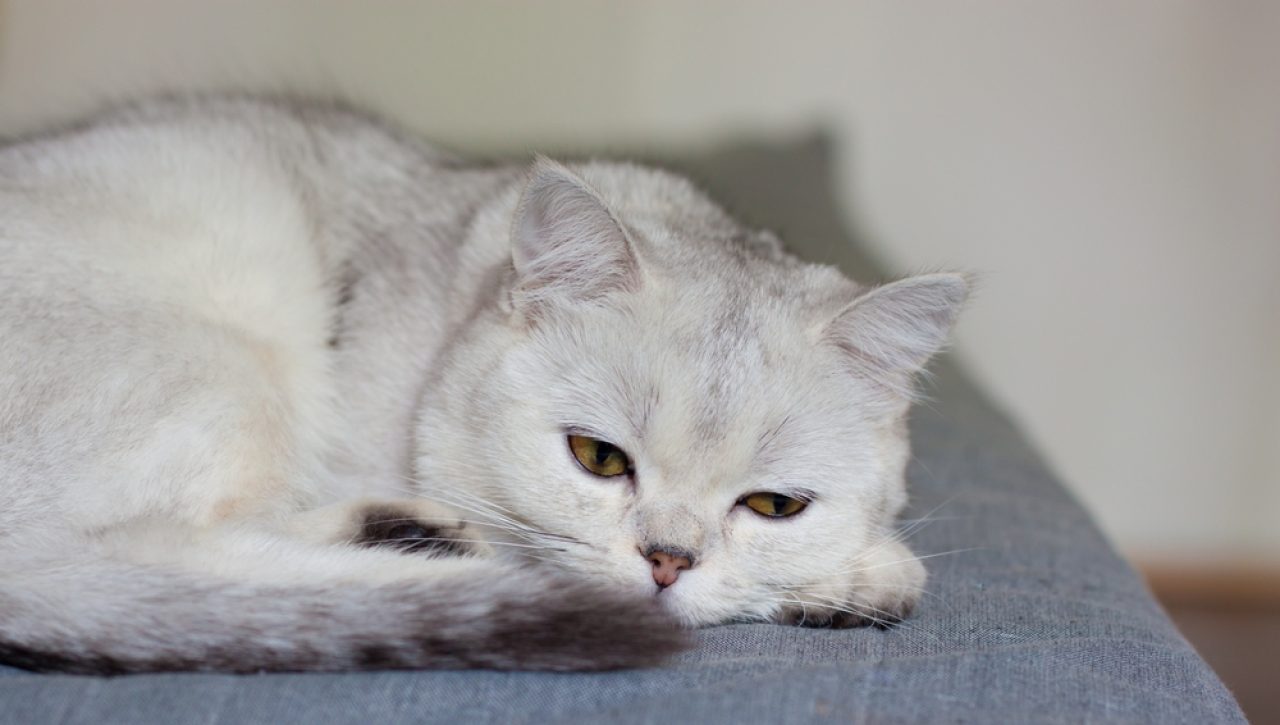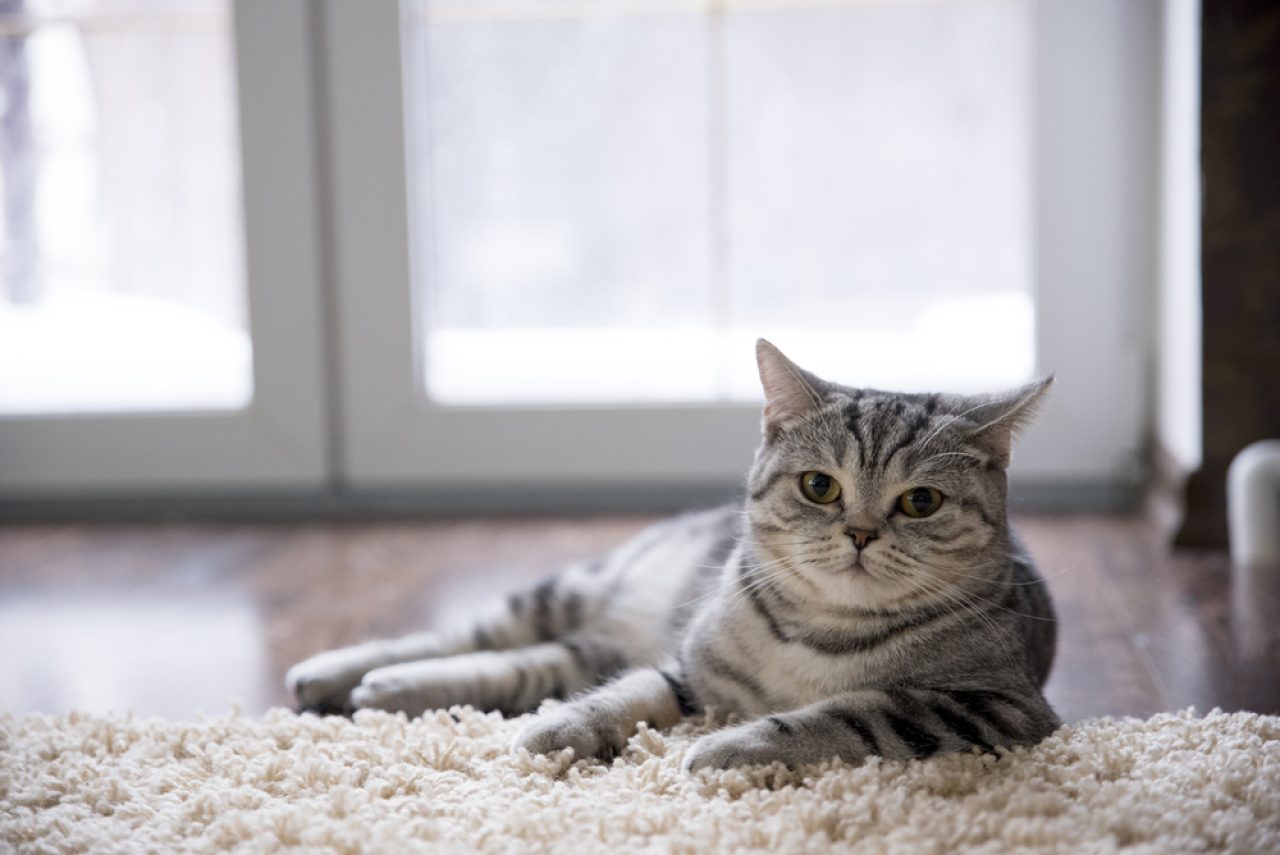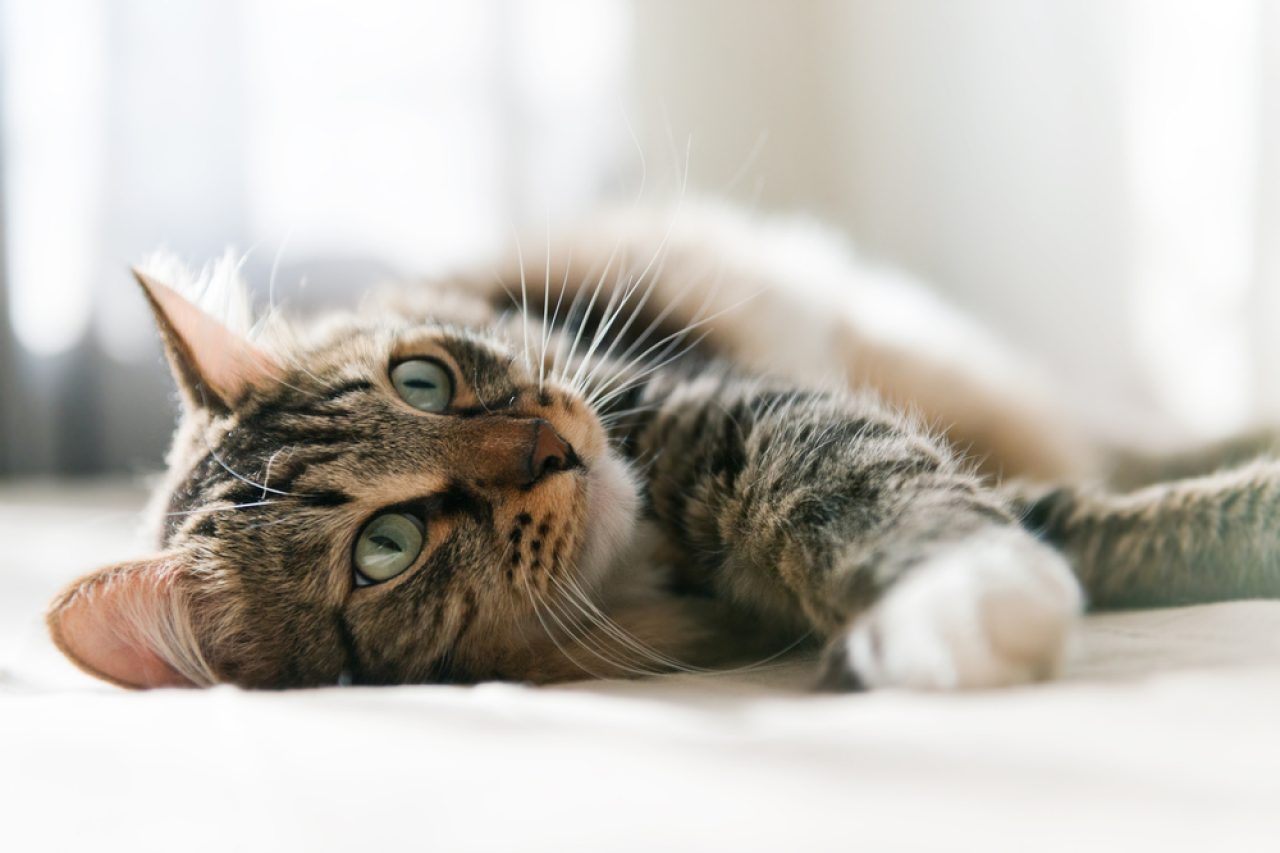📖 Table of Content:
Cuddling your cat is one of the most wonderful experiences every cat parent looks forward to. It’s warm and calming, and every worry in the world vanishes. That is until you end up with your clothes covered in cat hair. But why is your cat losing whiskers?
We’re happy to tell you that you can put your worried mind at ease. Your cat losing her whiskers is purrfectly normal. They grow, shed, and regrow, just like the rest of her fur. Cleaning your house and finding one or two of them is no cause for concern.
However, if you notice your kitty’s been losing her whiskers more than usual, it could be a sign that her body’s going through something. Don’t worry, it’s often nothing serious, but you should still pay attention to it.
Although whiskers make felines look adorable, they have a bigger role in their lives than most of us think. Because of that, it’s important that your kitty keeps them, and we’re here to help you understand why she might be losing some of them lately. Once you find the root of the problem, it’ll be a lot easier to treat it.
Why do cats need whiskers, anyway?
Our feline friend’s whiskers are not only there to make them look paw-some, but they’re an important part of their body’s dynamics. In simple words – they are their sensors. They pick up vibrations from the air and objects around your cat, and she relies on them for almost everything. Sounds cool, doesn’t it?
Now, we all know that old saying that a cat always lands on her feet, but did you know that her whiskers help her do that? The long hairs on her face help your fluff ninja with her balance! Because they work as her sensors, she’s able to control her body and limbs in space.
Another cool thing about cat whiskers is that they’re almost always as wide as their bodies. Isn’t it fascinating how our kitties can go through almost any hole, no matter how impossible it may seem to us? Before they do, they always stick their heads first. If their whiskers can go through the gap – they can, too!
If you’re ever stuck in the dark with your fur friend, let her lead the way. She’s got her whiskers to help guide her! These magical hairs on her face are super sensitive to touch, which is why it may seem like your cat can see in the dark.
Because they pick up frequencies from the air, our feline ninjas always know if someone or something is approaching them. That’s what makes them such good hunters! If there’s any change in their surroundings, the extraordinary hairs on their faces will let them know.
Losing her whiskers means your cat would have a hard time keeping her balance and she’d often get stuck in places. Your fluff would lose all her catfidence, which is why it’s important to keep them strong, healthy… And on her face.
Why is your cat losing whiskers?
Now, we know that cats shed their whiskers naturally. They’re always being replaced, just like the rest of their beautiful fur. It doesn’t happen frequently and they usually lose one or two at a time, which is why we rarely notice it.
However, if you see your kitty’s looking a bit different and has fewer whiskers than usual, she might have an issue you weren’t aware of. They never fall out in clumps. If you notice they do, it’s probably not the case of natural shedding. Here are the possible reasons why it might happen.
1. It’s an allergic reaction
A pretty common reason why you’ve noticed your cat losing whiskers is an allergic reaction. Yes, our kitties suffer from allergies just like we do – but theirs usually look nothing like ours.
While we get puffy eyes and runny noses, the allergies in cats can often cause facial itching and skin inflammation. Because of that, our furbabies that deal with these kinds of skin issues turn to paw scratches and rubbing their faces on furniture. All of this can cause their whiskers to break or fall out.
To help your kitty keep her whiskers (or what’s left of them), it’s important to discover what is it that your feline’s body is reacting to. There are three things your cat might be allergic to – food, parasites, or something from her environment.
If your fuzzball starts shedding, rubbing her face, or grooming excessively, you should have her checked by a veterinarian. They’ll run all the necessary tests to determine what your kitty’s allergic to and what you can do to help.
In some cases, your vet might prescribe certain medications, shampoos, or ointments to help your feline with her allergies. However, they can often be treated simply by making slight changes in your cat’s environment or lifestyle.
If she’s dealing with food allergies, your vet might ask you to put her on a special diet or cut out certain types of food. If she’s dealing with environmental allergies, they’re often a bit harder to avoid. It could require you to make some changes in your life, as well. But it’s all for the long and healthy life of your furball.
2. Your cat may be dealing with an infection
Having a similar effect as allergies, bacterial, parasitic, or fungal infections can cause your cat to lose her whiskers, together with some of her fur. They can induce your kitty’s skin to flare up and itch. If it happens anywhere near your feline’s whiskers, she could lose them while attempting to relieve the irritation.
Ringworm is a common reason why this happens. Don’t panic, it’s not really a worm. It’s a fungal infection often found in kittens, but it’s not so rare with adult cats as well. It directly affects the hair shaft, making your kitty’s fur more fragile. That’s why your fuzz might have some bald patches here and there.
Other common symptoms of skin infections are crusting, flaking, and inflammation. If any of them sound familiar, make sure you take your feline to the vet as soon as possible. They’ll take samples of the skin, determine the exact type of infection, and treat your fluff accordingly.
The treatment for skin infections in cats often includes special shampoos, ointments, and oral or injectable medications. Don’t worry, they’re usually easily treatable and don’t have long-term effects. Your kitty will be her healthy self in no time, with beautiful fur and strong whiskers.
3. Feline acne is a real thing
This one might come as a shock, but our cats can suffer from acne just like we do. I know, you thought you were done dealing with acne for the rest of your life – and now you find out your kitty might suffer from it too?! Sorry to be the bearer of bad news…
This all may sound too familiar, but feline acne usually starts at the chin and it can make its way to the cheeks. That’s where it comes in contact with whiskers and your cat might start losing them.
How do cats get acne, you may wonder. Well, it’s all connected to how much sebum their body produces. Too much oil in the hair follicles results in the blockage of glands, which then leads to acne. Sometimes, they’re hard to notice, but there are other ways you can recognize them.
They often affect cats’ lips, chin, and cheeks. The area is typically oily and flaky, and your kitty might rub it a lot to relieve the itchiness. Although your vet will prescribe ointments and shampoos that can help your cat, there are some things you can do to prevent this from happening again.
For example, it’s a good idea to change her plastic food bowls to metal or ceramic ones and wash them frequently. The build-up of bacteria on plastic is the most common cause of feline acne, so it’s best to avoid any face-to-plastic bowl contact.
In no time, your kitty’s skin will go back to normal, and she’ll no longer have to deal with the issue we all grew to hate. Most of us know what’s it like to deal with acne, so don’t get annoyed by your kitty constantly itching her face. It might give you some flashbacks to your teenage years, too…
4. Trauma or physical damage
If your feline is a little angsty fighter, then that could be the reason why she’s suddenly whisker-less. Your purrer might try to hide the fact that she just got into a catfight, but her bold face and shabby whiskers speak for themselves.
If your feline is allowed to go outside, she probably gets into a fight or two. More often than not, cats lose their whiskers during the duel. If you share a house with another feline companion, then a harmless play between the two purrers can have the same effect.
However, if your cats fight often, that could lead to more issues than just a few broken whiskers. Your felines might start feeling anxious, stressed, and unsafe in their own home. To avoid that and many other problems that come with it, it’s important to create a safe space for all of your furry friends.
Make sure that your feline companions have their own bowls, litter, beds, and toys. And try to spend enough time with all of them. They are territorial and slightly possessive, so make sure they have no reason to feel irritated. It will keep the harmony in your cat-filled home and the whiskers on their faces.
Fighting and playing aren’t always the reason behind trauma. Physical wounds can manifest in different ways and have different causes. Your kitty might hurt herself by rubbing her face against sharp objects, buildings, and trees.
If your cat frequently returns home from her little roaming session with wounds, you might want to avoid leaving her outside unaccompanied. A good idea would be to try training her on a leash. That way, you can spend some quality time together, as well.
Can your cat’s whiskers regrow?
If you’ve spotted your cat losing whiskers, you’re probably worried and wanna know if they’ll ever grow back.
The good news is that everything will be fine as your pet’s whiskers will probably regrow! If you find the root of the problem and get to solving it right away, in most cases, there’s no reason for the whiskers not to grow back.
Taking your cat to the vet and letting them examine her for any possible health issues is the first step in helping your kitty get her little sensors back. Whether it’s health or environment-related, there’s a solution for everything. The most important thing is that it’s not a lost cause.
Yes, you might have to make some changes in your feline’s lifestyle, but it’s all for the sake of keeping her healthy. She’ll be thankful for everything, even if she might not seem like it at first. She likes her routine and her food (even if it makes her break out), so make sure to arm yourself with patience and understanding.
Your kitty relies heavily on her whiskers in her daily life, and it should be your top priority to help her grow them back as soon as possible. Of course, if it happens naturally, there’s no need for intervention. But if they fall out in large numbers, definitely get her to the vet as soon as possible.
